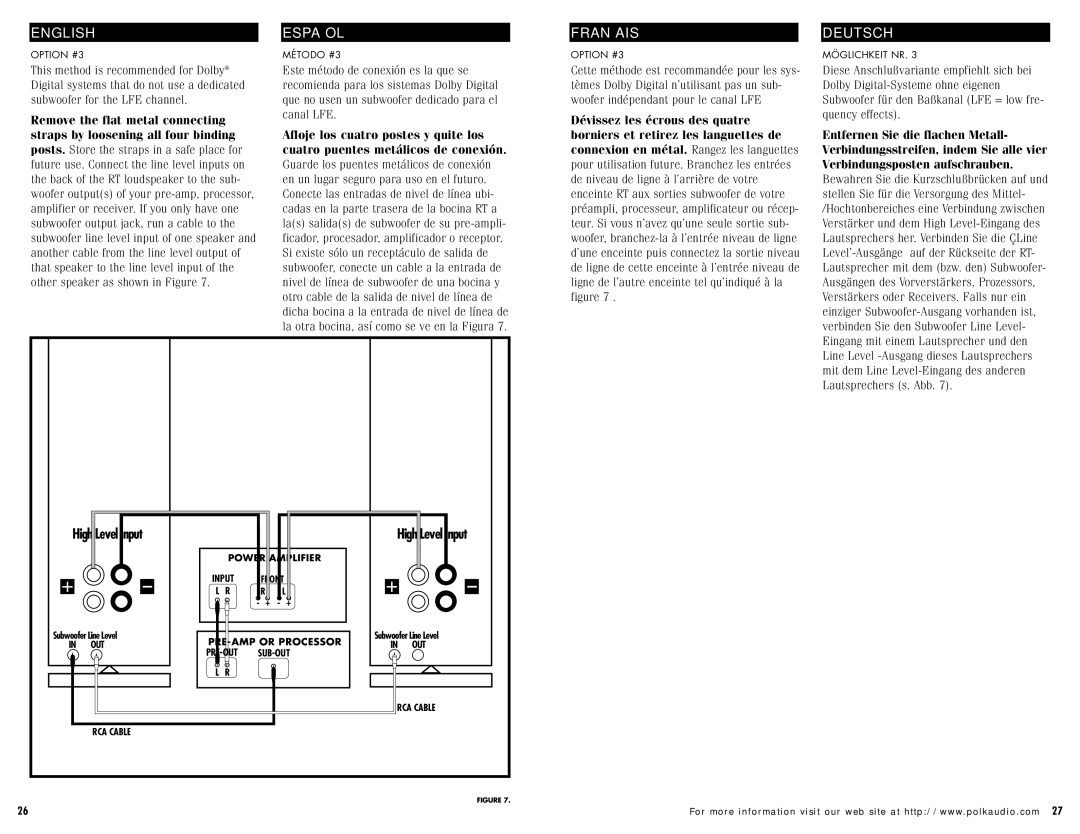RT1000P, RT2000P specifications
The Polk Audio RT2000P and RT1000P are renowned for their high-performance audio capabilities, making them popular choices among audiophiles and home theater enthusiasts alike. Both models are part of Polk's esteemed RT series, known for combining innovative technology with stylish design, delivering exceptional sound quality for music and movies.Starting with the RT2000P, this model is a powerful floorstanding speaker that features a unique bi-directional design. The RT2000P is equipped with dual 6.5-inch polymer composite woofers and a 1-inch silk dome tweeter, contributing to its rich and dynamic sound profile. This setup allows it to reproduce deep bass while maintaining clarity in the mid and high frequencies. A standout feature is its built-in powered subwoofer that utilizes a 150-watt amplifier, enabling deep, room-filling bass response that enhances the overall listening experience. Additionally, the RT2000P incorporates Polk's patented PowerPort technology, which minimizes turbulence and distortion, resulting in a more accurate bass reproduction.
On the other hand, the RT1000P is a slightly smaller floorstanding speaker that still packs a punch with its innovative design and technology. It features dual 6.5-inch dynamic balance woofers and a 1-inch tweeter that deliver a well-balanced audio output. The RT1000P also utilizes the same PowerPort technology found in the RT2000P, ensuring that low frequencies are reproduced with precision and power. While it lacks the built-in subwoofer of the RT2000P, the RT1000P offers excellent bass response and can serve as a powerful addition to any home audio setup.
Both models are constructed with high-quality materials and feature Polk's trademark Dynamic Balance technology, which helps eliminate unwanted resonances in the speaker's cabinet. This ensures that sound remains clear and undistorted, even at high volumes. In terms of aesthetics, both the RT2000P and RT1000P boast a sleek design with a wooden veneer finish, making them an attractive addition to any room.
In summary, the Polk Audio RT2000P and RT1000P speakers are designed with a range of advanced technologies and features that deliver exceptional sound quality. Whether you are a music lover or a home theater enthusiast, these speakers offer a compelling combination of performance, style, and durability, ensuring an immersive audio experience.

